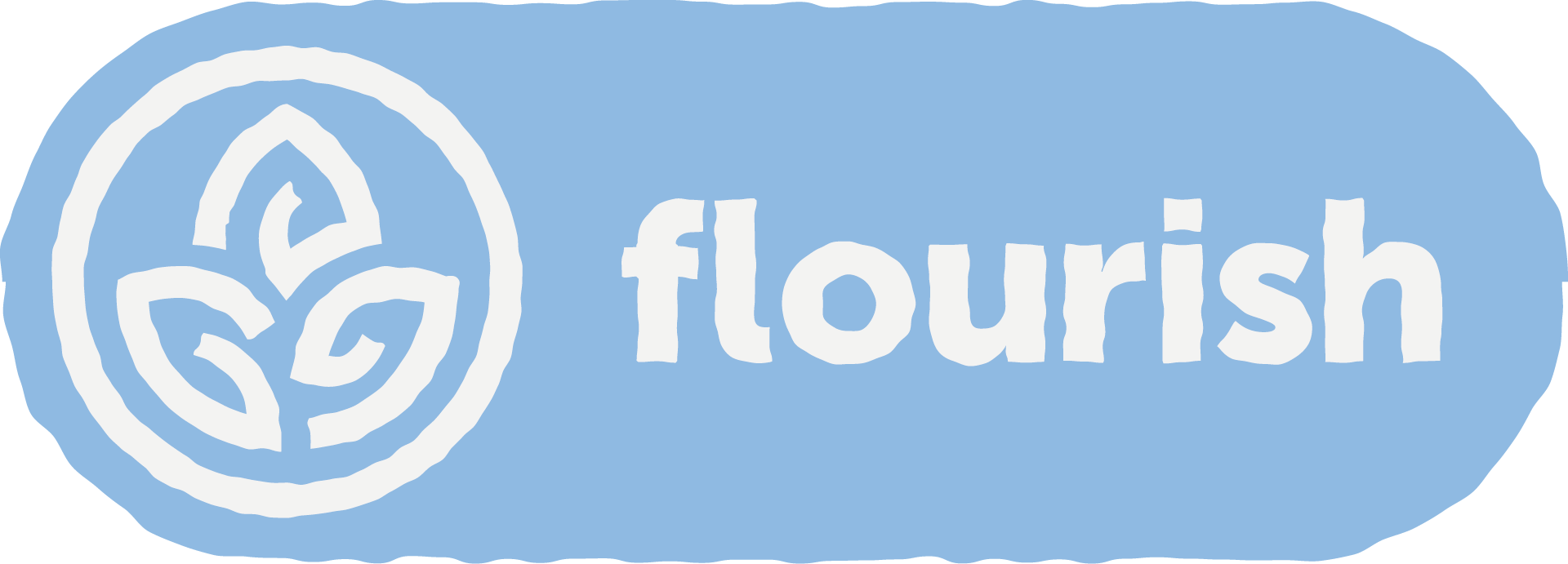What does it look like to Flourish?
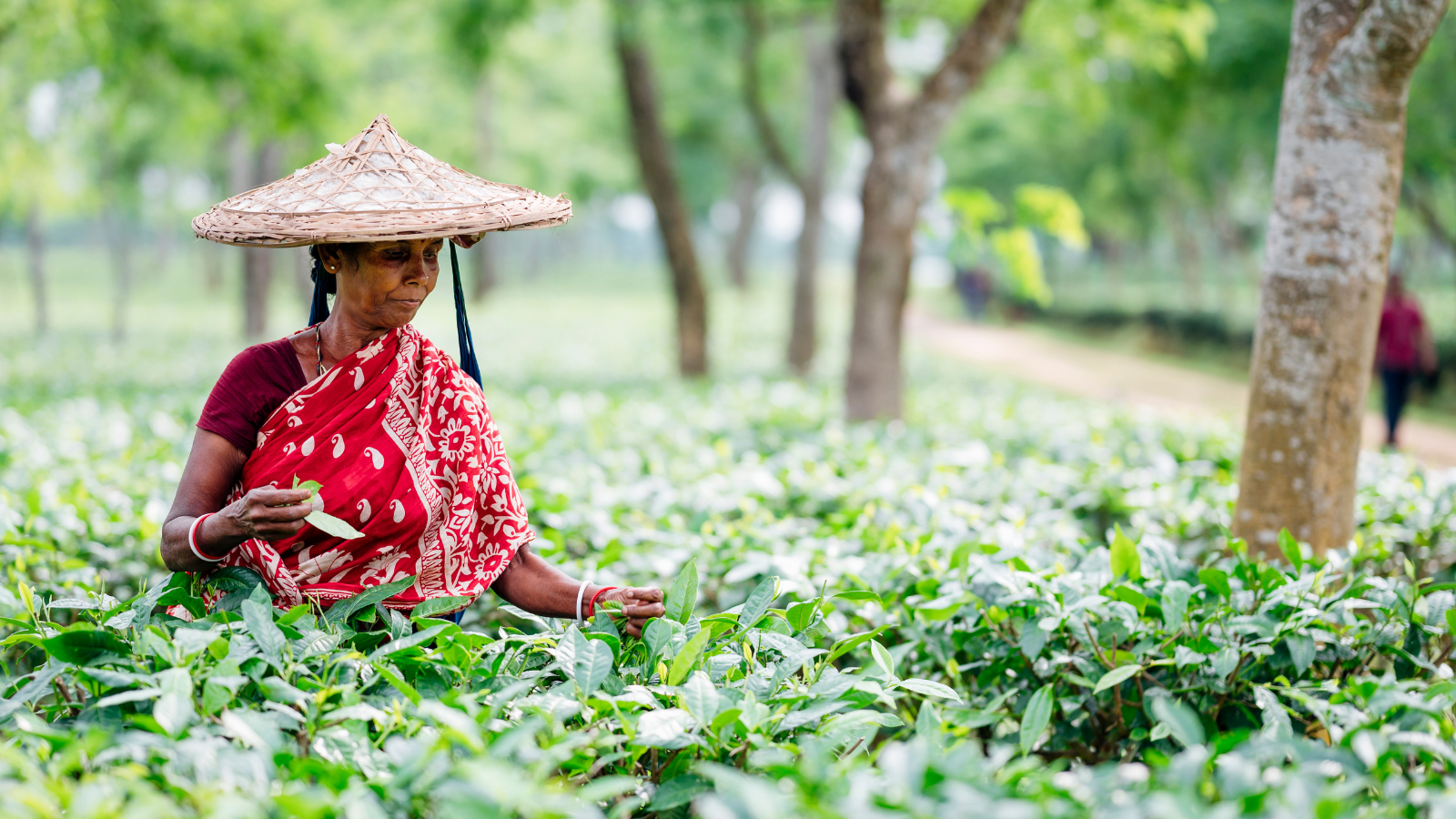
In the beautiful tea gardens of Bangladesh, rows of lush green leaves stretch as far as the eye can see.
But while the trees and tea shrubs flourish, leprosy has taken root. 600,000 people live and work in the tea gardens of Sylhet, northern Bangladesh. Almost every family here is affected by this disease and leprosy rates are 20-30 times higher here than the global average.
If the spread of the disease is not stopped now, it will have devastating consequences not only for those working in the tea gardens, but for all of Bangladesh.
We believe that every person deserves life in all its fullness. We can’t stop until, together, we see flourishing health, flourishing communities, and flourishing lives.
Now is the time to join us and help train healthcare workers to diagnose and cure leprosy, prevent disability, protect livelihoods, and stop the spread of this disease. The hopes and dreams of thousands of tea garden workers depend on it.
World Leprosy Day 2023 is on 29 January. Will you join with us today?
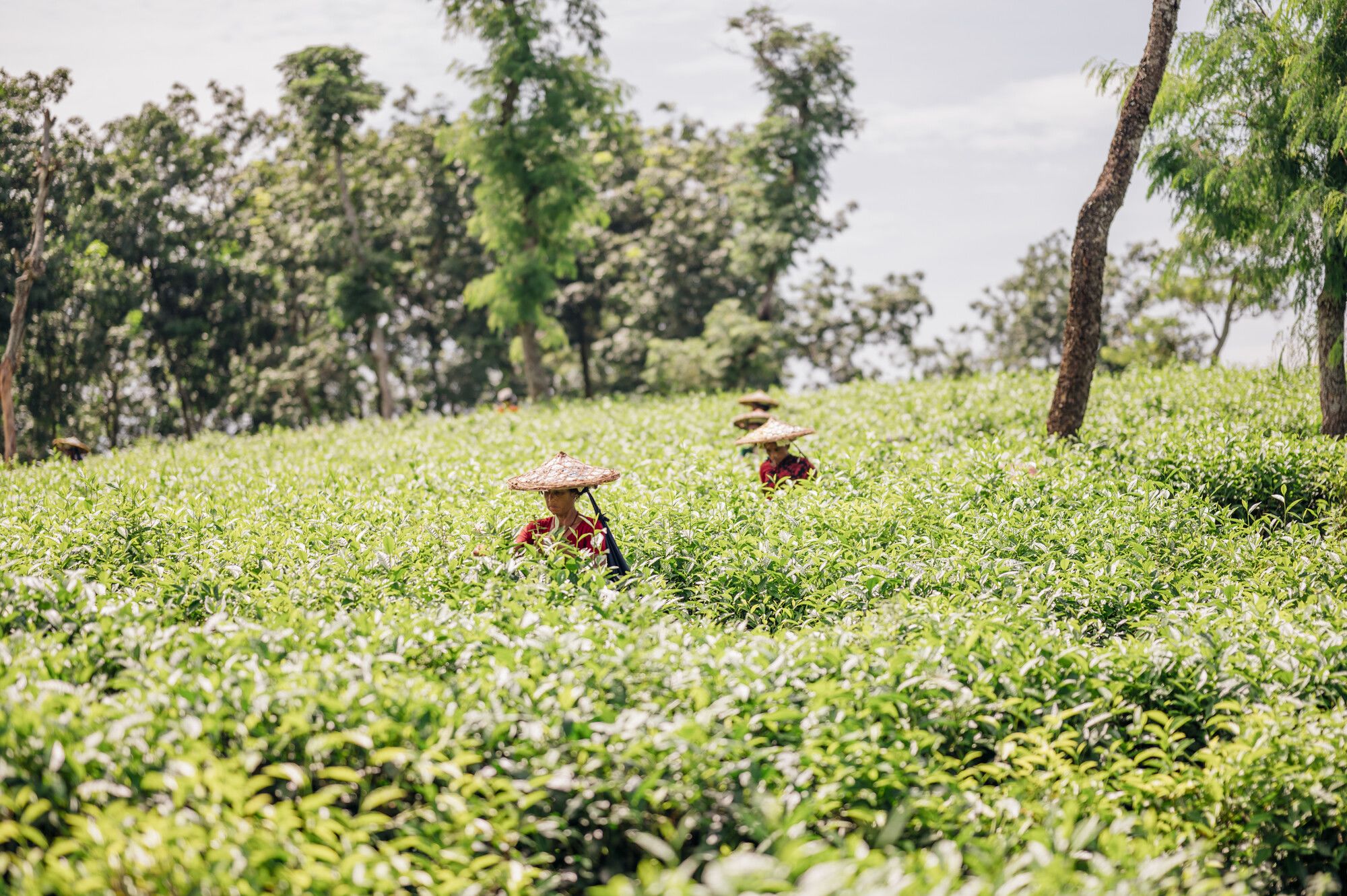
Meet Aloka
Aloka has worked as a tea picker since she was a teenager.
Sylhet's rolling hills and subtropical climate make it the perfect place for growing tea. And Aloka has never known life anywhere else. Sylhet is her home and where her heart lies.
While her life hasn't always been easy, Aloka gives thanks for her many blessings. As a mum of four and grandmother of three, she's the linchpin holding her family together. She lives with her husband Sunil and two of their adult children, along with their own families.
Aloka's youngest grandson, Ajoy, is the apple of her eye and she loves spending time with him when she's finished work for the day.
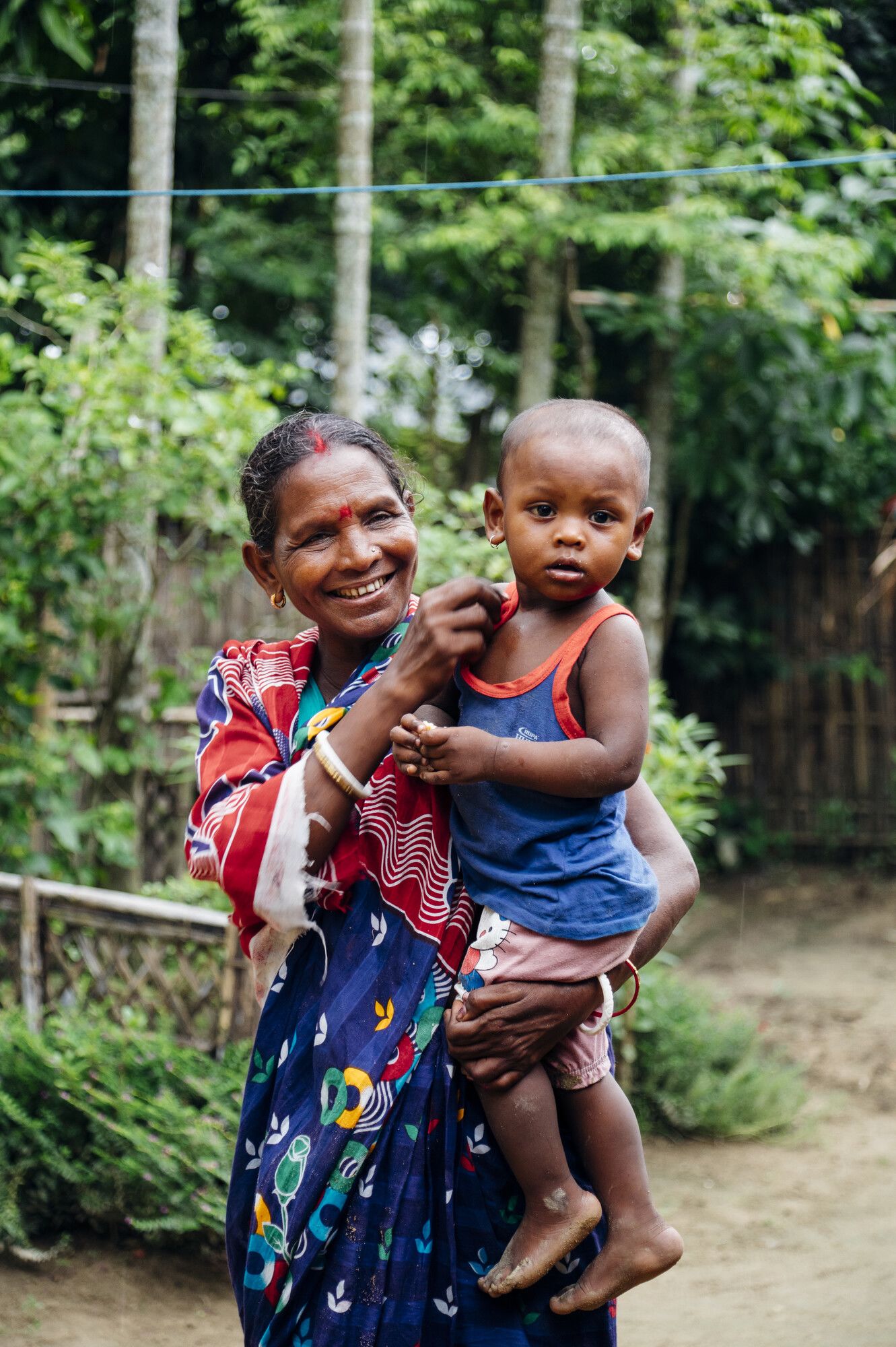
She's not only held in the highest esteem by her family, but also by her colleagues. Recently, she was chosen by her fellow workers to represent the tea gardens at a meeting with the Prime Minister of Bangladesh.
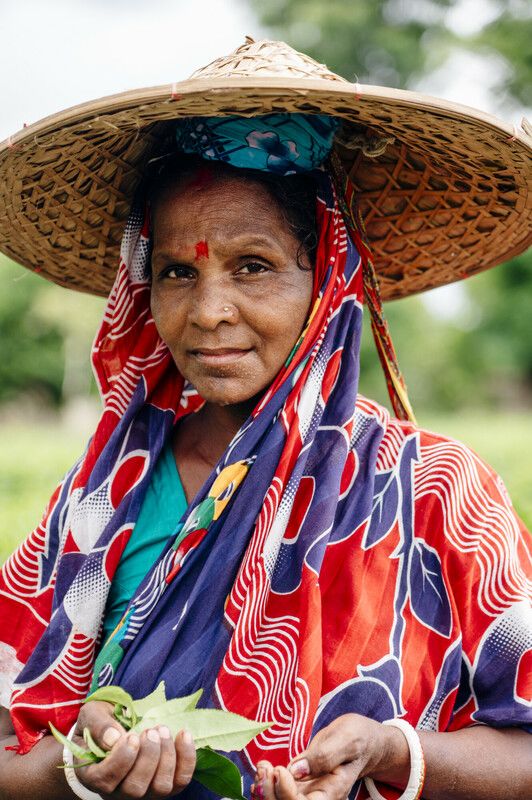
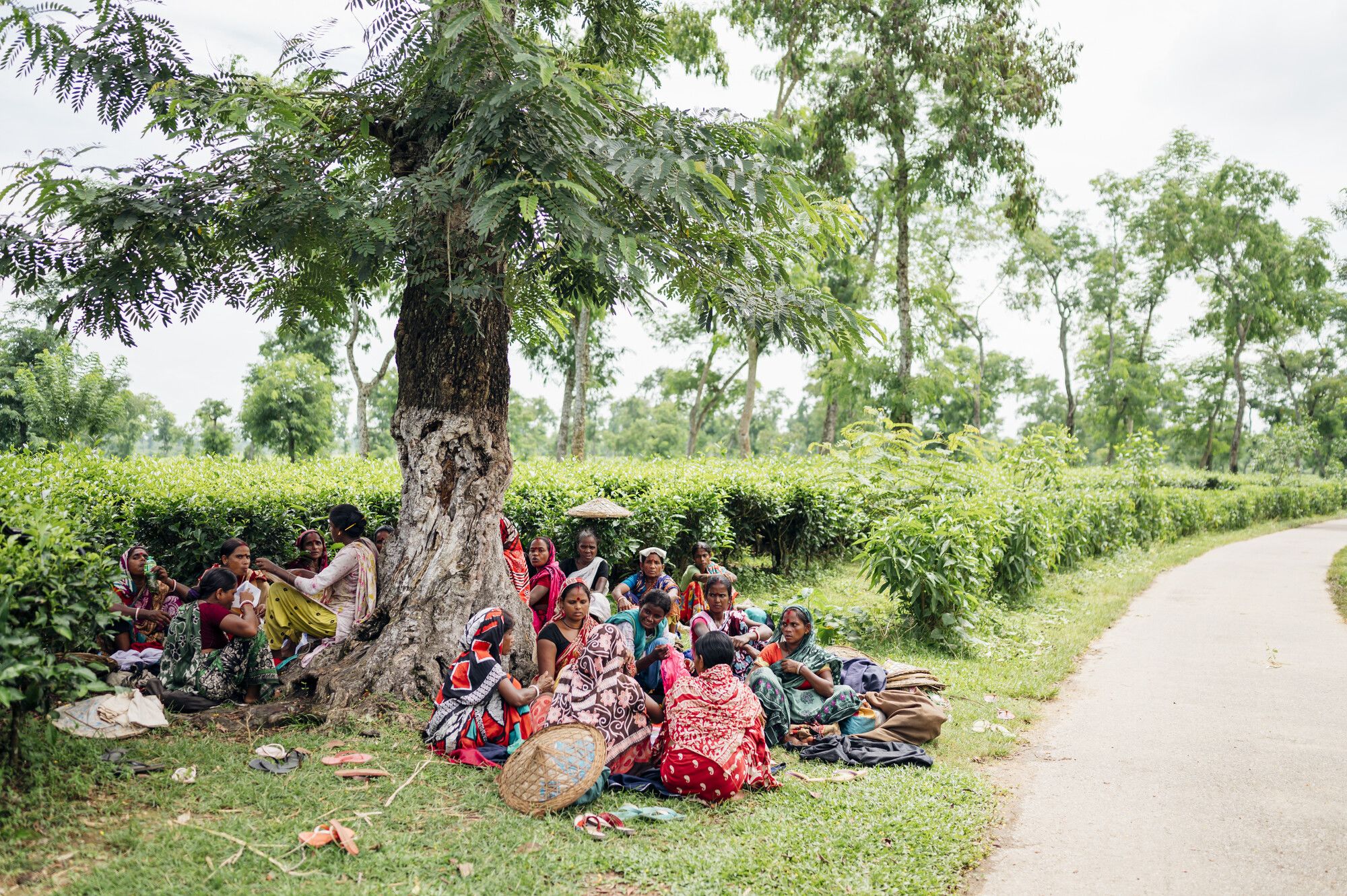
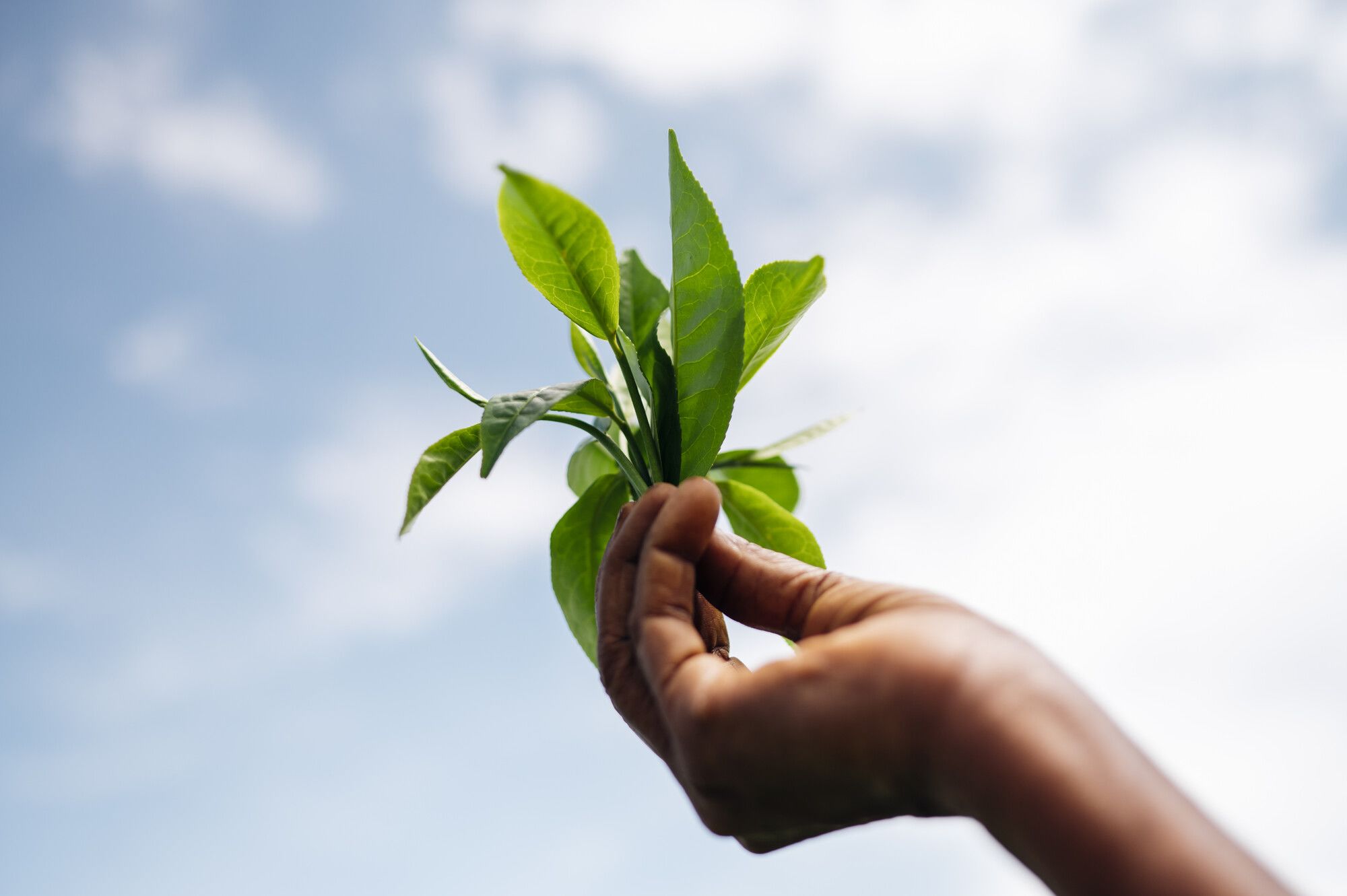
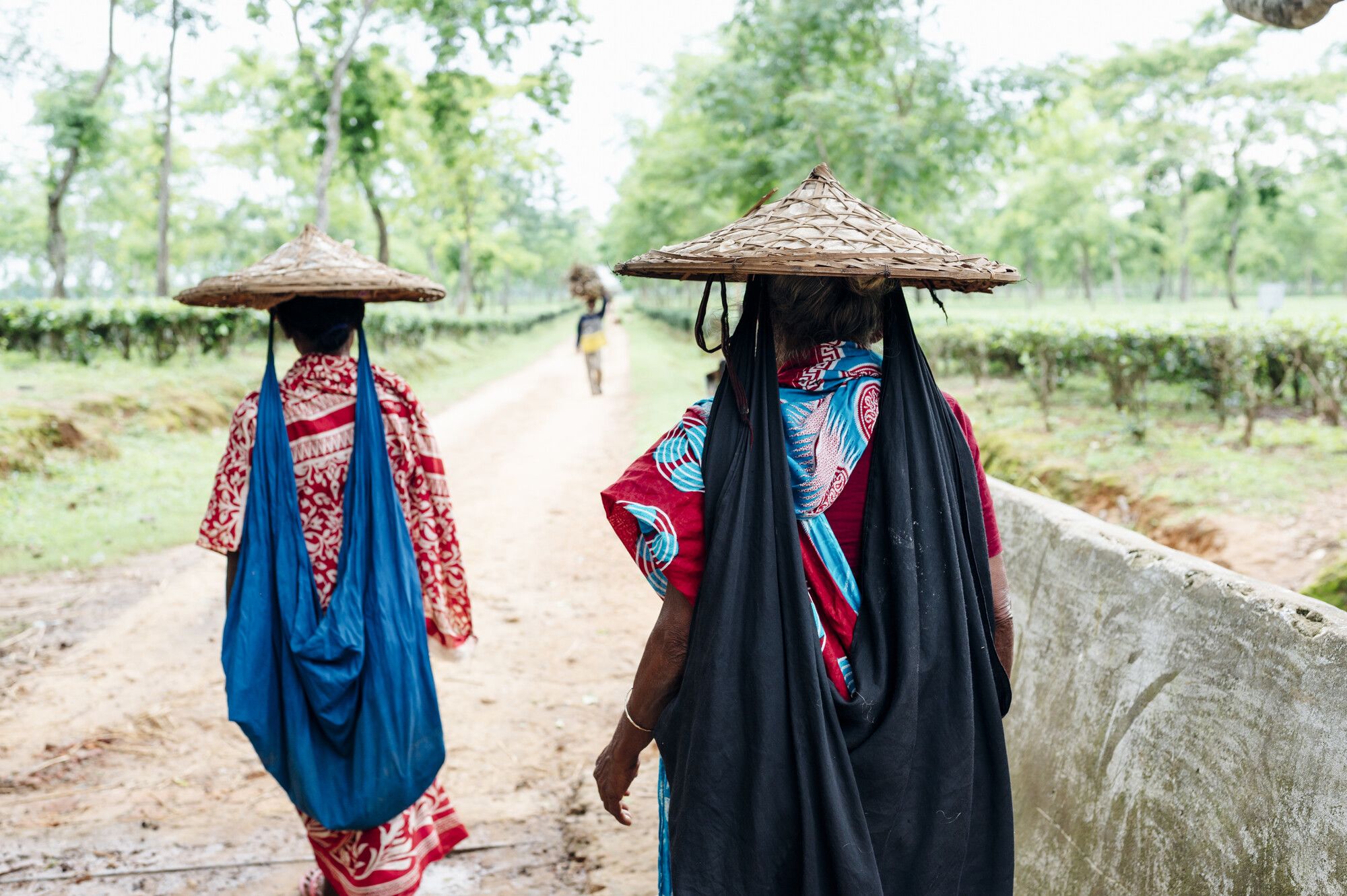
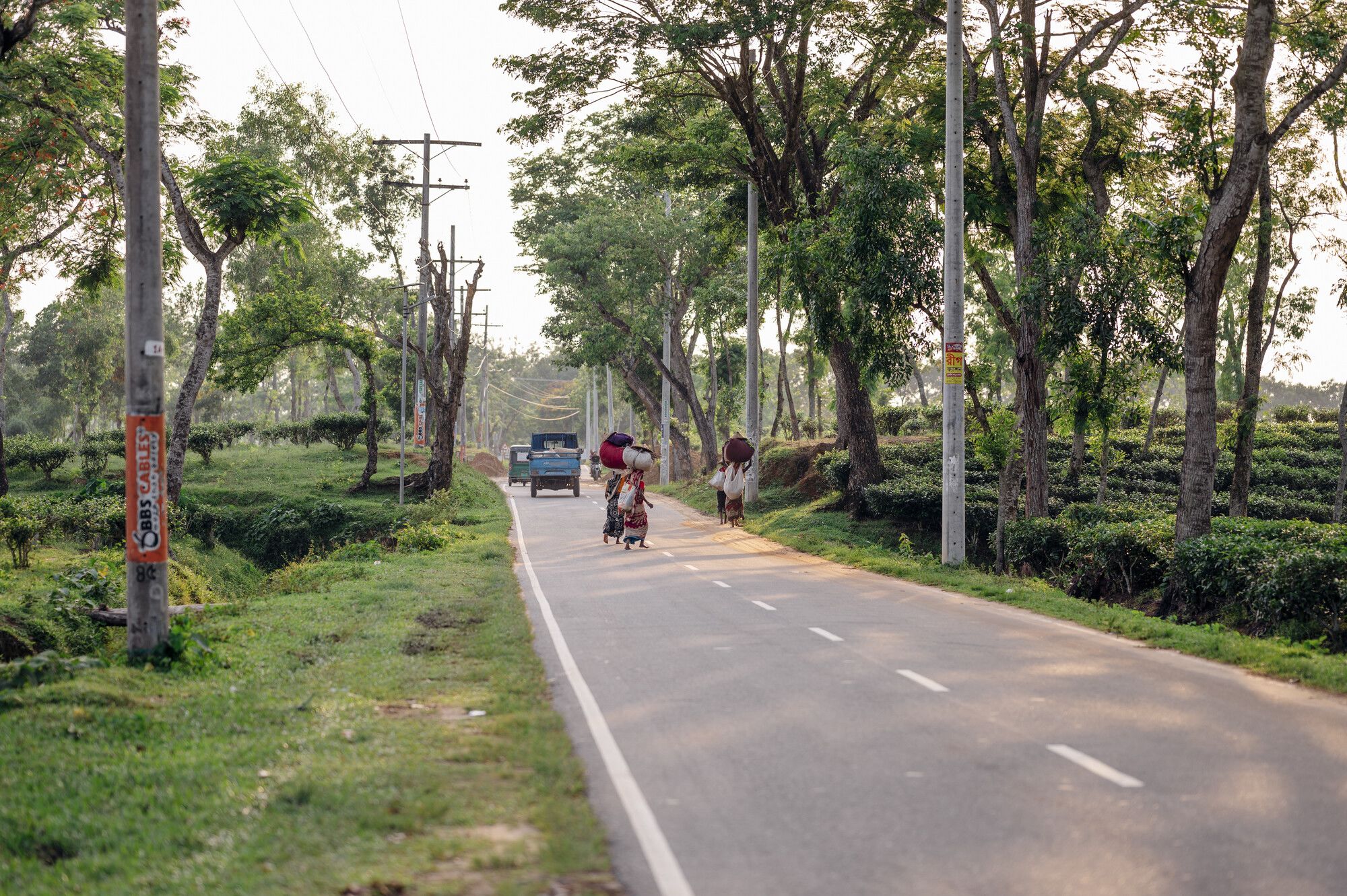




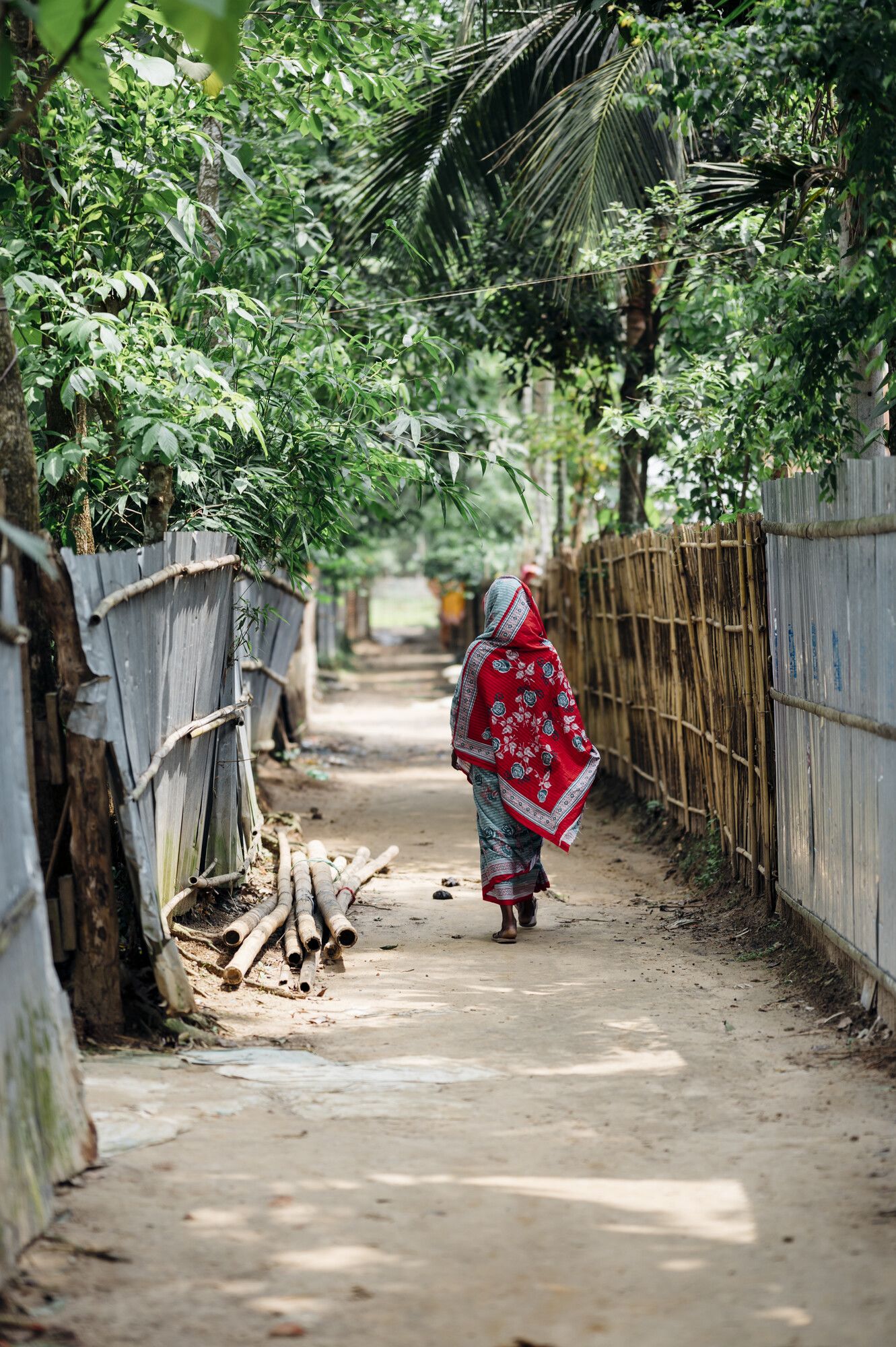
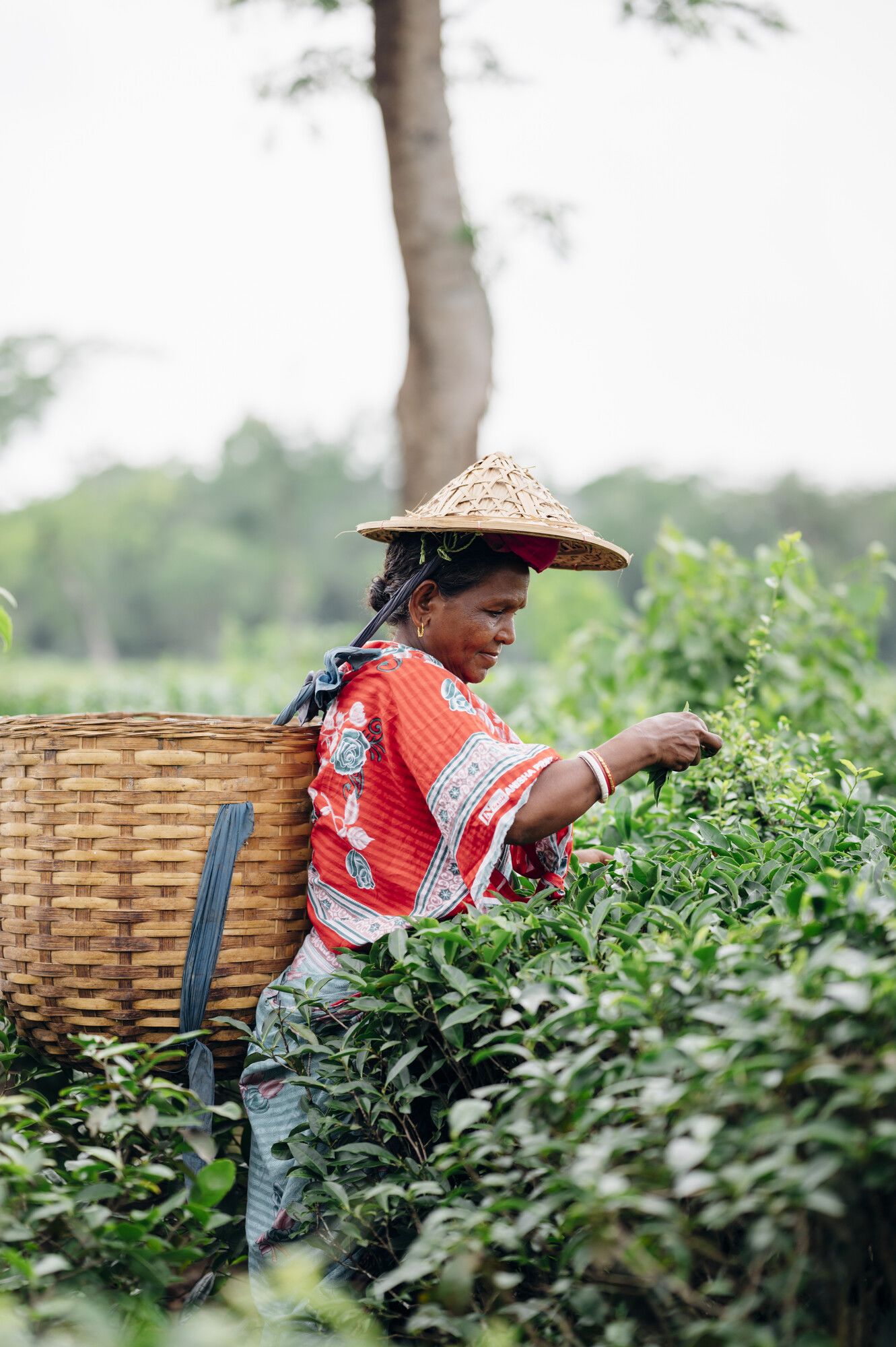
Each morning Aloka makes breakfast for her family before setting off on her walk to work. On her way, she meets her friends, and they share stories and news about their families.
The tea pickers have known each other for decades and share a wonderful closeness. Working long hours in the intense heat and humidity is tiring. But Aloka is just thankful that she is still able to work. She knows of so many others who haven't been so fortunate.
A couple of years ago, Aloka noticed a discoloured skin patch on her left hand. She carried on working as it didn’t seem to cause her any problems at first. But over time she started to lose the strength in her hand. Her fingers began to stiffen and she had trouble straightening them.
One day, Leprosy Mission health workers came to the village and Aloka went to them for help. She was diagnosed with leprosy and received the cure. But her hand was already permanently disabled. She’s lost all feeling. Her fingers won’t straighten and they can’t grip the delicate tea leaves.
This means Aloka can now only pick tea leaves with her right hand. As she is paid by the kilogram, she earns a fraction of what she once did, impacting her entire family.
Aloka tries to stay positive. In her spare time, she runs a self-help group for others affected by leprosy. The group members check each other for cuts on their numb feet. They do this to stop wounds becoming infected and prevent disability. They also run a savings group to encourage financial independence.
Aloka has to take great care when cooking because she can't feel the heat of the fire on her left hand. She still needs medical support to stop her fingers from clawing even more. If her hand got worse and she wasn't able to work, Aloka doesn't know how her family would manage without her wage.
Today in the tea estates of Sylhet, there are thousands more people like Aloka. People affected by leprosy who need urgent treatment. Families worried about losing their livelihood. Communities that want to flourish.
Together, we can work to end leprosy in the tea estates of Bangladesh. Will you join us?
In 2023, you can hold a Leprosy Sunday in your church, fundraise with your friends, or give a gift that will help create a future where leprosy has no hold over families and communities. World Leprosy Day is on 29 January, but you can also hold your event on any day that is convenient for you.
A future where people like Aloka can truly flourish.
A gift of £24 will get the cure for leprosy to someone like Aloka.
£46 could pay for vital wound care for someone struggling with the effects of leprosy on their hands or feet.
£111 could fund a pop-up clinic in a tea garden, ensuring new cases of leprosy are diagnosed and people get the treatment they need.
£481 could pay for a training course for health workers and tea garden residents, equipping them to spot the signs of leprosy and manage the disease.
Get your church involved
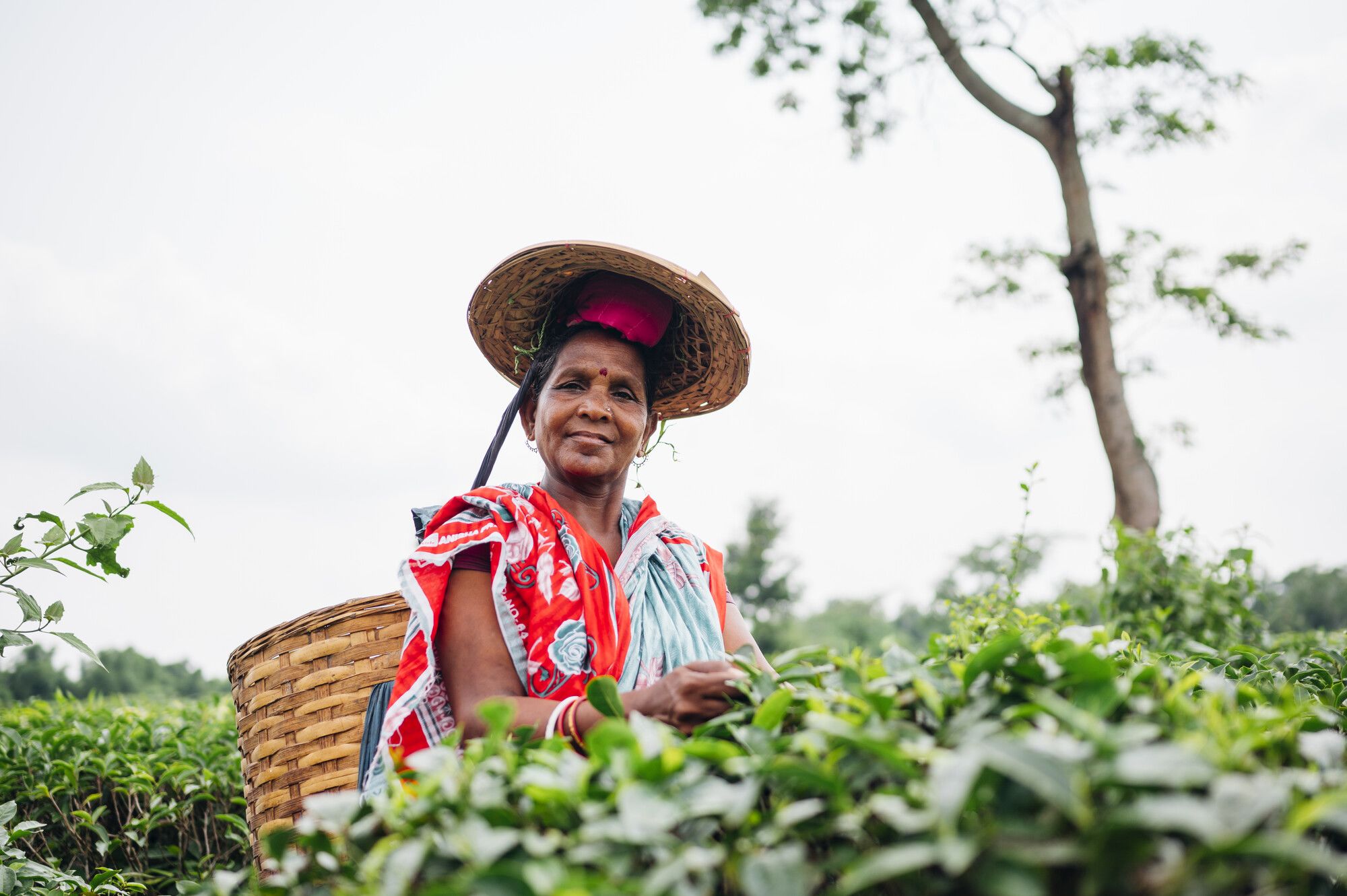
Pray
We believe that prayer is powerful - find out how you can pray for the residents of the tea gardens and Leprosy Mission staff in Bangladesh.
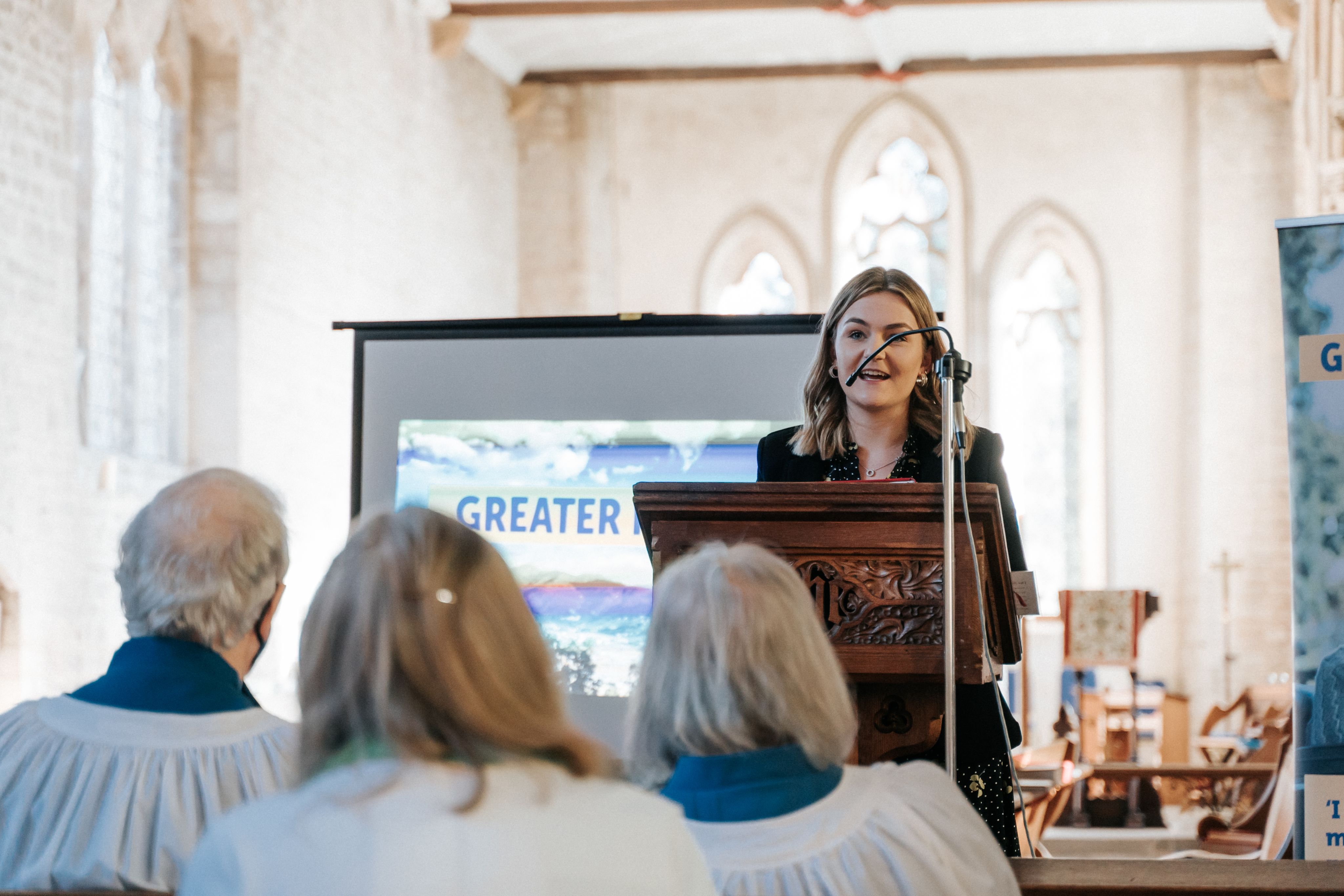
Book a visit
Book a visit from a Leprosy Mission speaker, who will give an inspiring talk about how your church or group can transform lives.
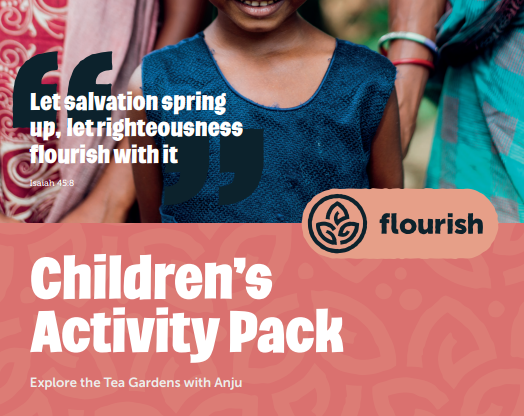
Get your resources
Download your free Flourish resources - from a film to children's materials to wording for your church newsletter.

The Big Tea Party
Make a difference by bringing your community together for a cuppa! Hold a Big Tea Party and the money you raise will support people like Aloka.
On the front line:
Smita's story
The tea gardens of Bangladesh have the highest density of leprosy cases anywhere in the world. In these isolated rural areas, knowledge of leprosy is often limited. With no one to spot it, leprosy causes permanent disability and steals many of the basic skills we take for granted.
But thanks to the dedication of people like Smita, there is hope.
Smita is a community health worker who visits more than 250 tea garden workers across Bangladesh every year. She knew she wanted to help people affected by leprosy from a young age, when she saw the compassion her father showed to them through his work at a hospital.
Smita was also inspired by the stories of Jesus healing people with leprosy in the Bible. Her faith was a big part of her decision to become a health worker.
Today, she diagnoses people with leprosy and encourages them to join self-help groups, so they can care for their hands and feet and work together to improve their lives.
“I am inspired by the life of Jesus and I want to honour God in my serving. People affected by leprosy deserve love and affection. I can give them that by working for them. If The Leprosy Mission was not here, it would not be possible to control leprosy in this country.”
Will you stand with Smita as she works to support people with leprosy?
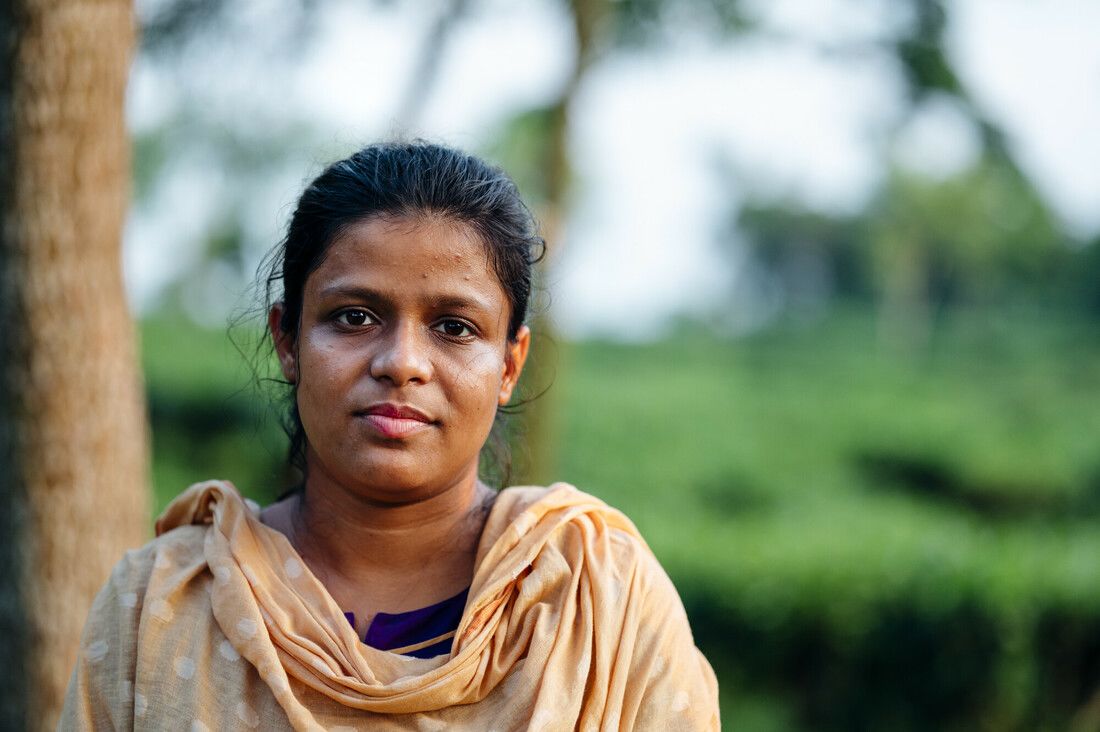
Meet Aloka's friends and neighbours
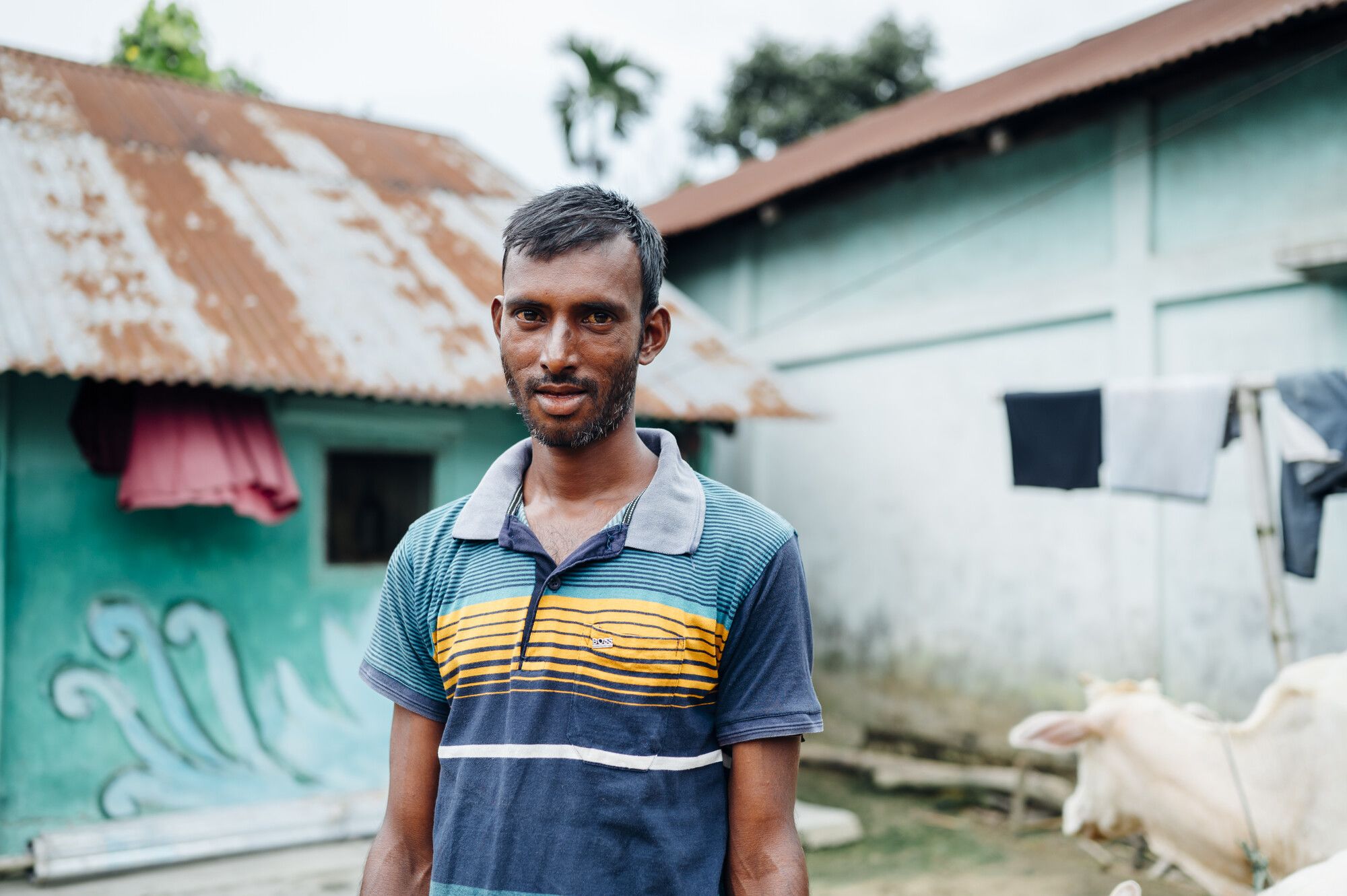
Protap
Protap climbed down from his tractor to unload the trailer of tea leaves and finish his day’s work. But as he tried to carry the first heavy tray, he found he could no longer grip the handle.
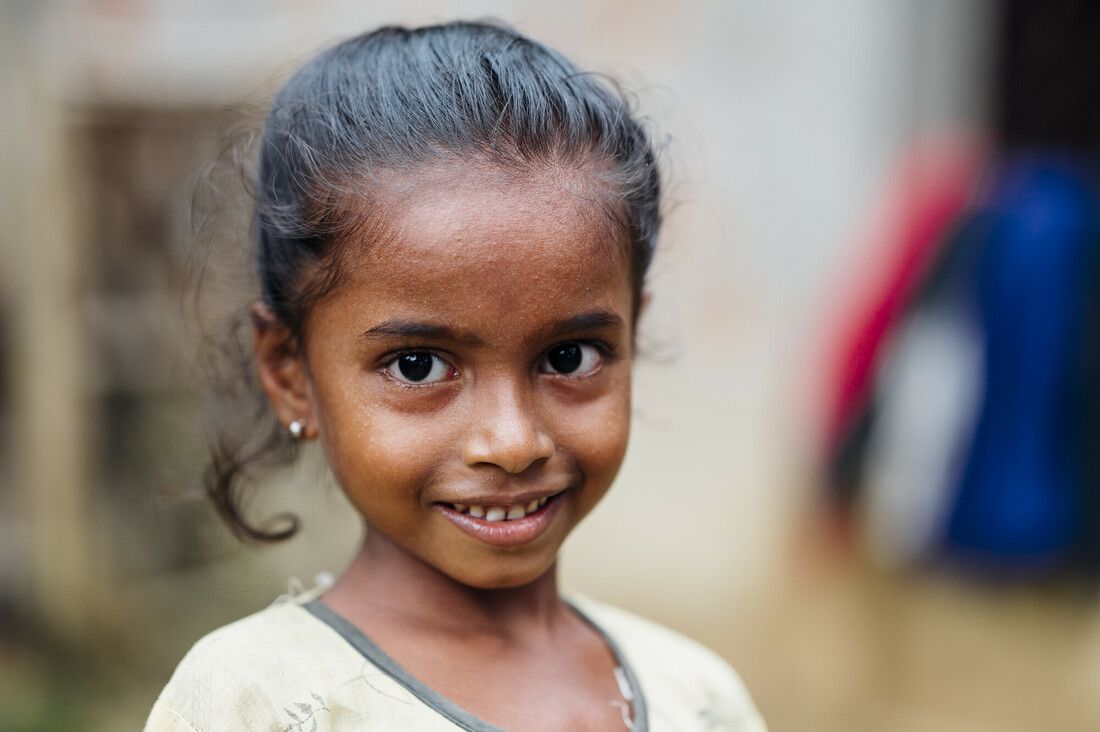
Anju
Five-year-old Anju was diagnosed with leprosy at a skin camp. Her family didn’t understand the damage that untreated leprosy could cause. They'd never heard of the disease before. But leprosy bacteria was silently attacking her nerves.
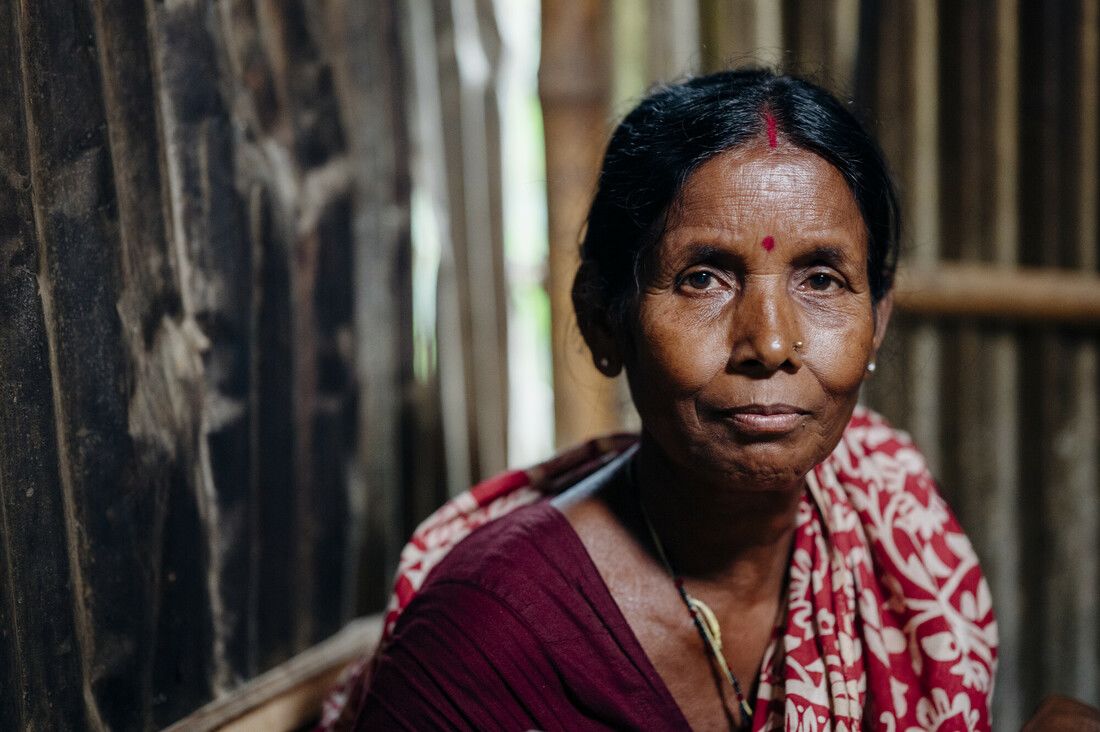
Dalamar
Dalamar waited in line at the skin camp, trying not to let fear get the better of her. It was hard not to worry about the discoloured patches of skin she’d noticed as she was bathing, but she knew she had to be strong for her family.
Indojith
Indojith's job is to coordinate the self-help groups in the tea gardens. He was inspired to get involved because his grandfather is affected by leprosy. He was a member of his local self-help group, and it was seeing the potential that the group had to make a difference in people's lives that made Indojith apply for the job.
He is trained to conduct group meetings and diagnose leprosy – when he finds a suspected case he refers the person to a health worker for treatment. Right now, he's supporting around 70 people affected by leprosy and other disabilities.
Twice a week, Indojith collects savings and loans from the self-help group members and helps to distribute them so that people can save and start their own businesses. He also follows up with patients to make sure they’re taking their Multidrug therapy. Indojith is keen to help more people access vocational training that will help them get good jobs.
It costs £1,018 to help form a self-help group and provide training for its members. Your gift could help a group of people like those that Indojith supports lift themselves out of poverty.
Rishi
24-year-old Rishi is a shoemaker. He followed his father into the family business and now provides an important service for people living in the tea gardens.
People affected by leprosy who have lost sensation in their feet find it's easy to injure themselves without realising. Stepping on something sharp or wearing shoes that rub can cause wounds to the feet that don't heal easily. These can then become infected, causing serious illness that might even lead to amputation.
That's why it's vital that people affected by leprosy wear comfortable shoes with thick soles that can protect their feet. Rishi knows his work makes such a difference to those he serves. “I like being able to provide shoes for people affected by leprosy. It makes me joyful to provide this service,” he told us.
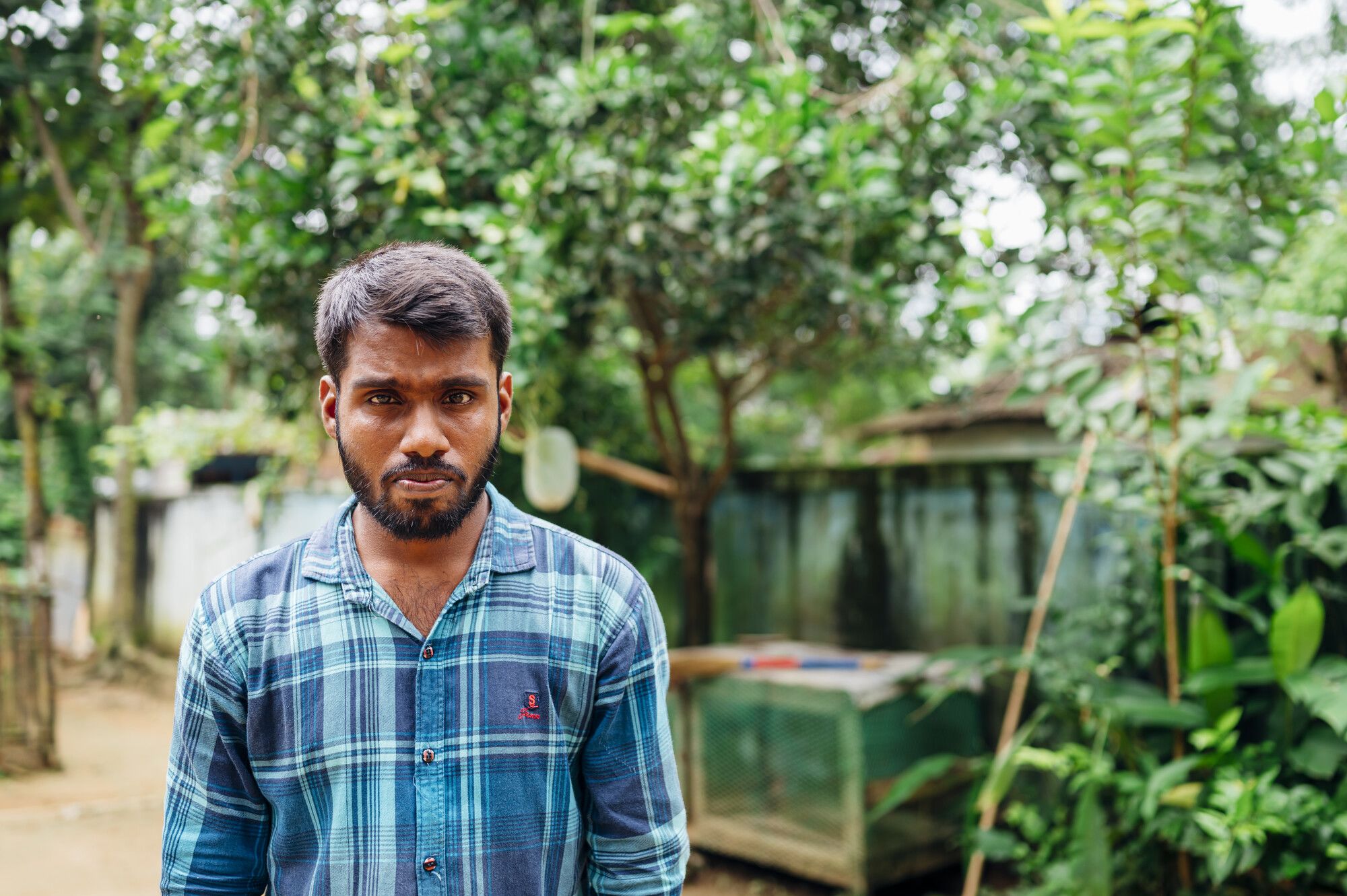
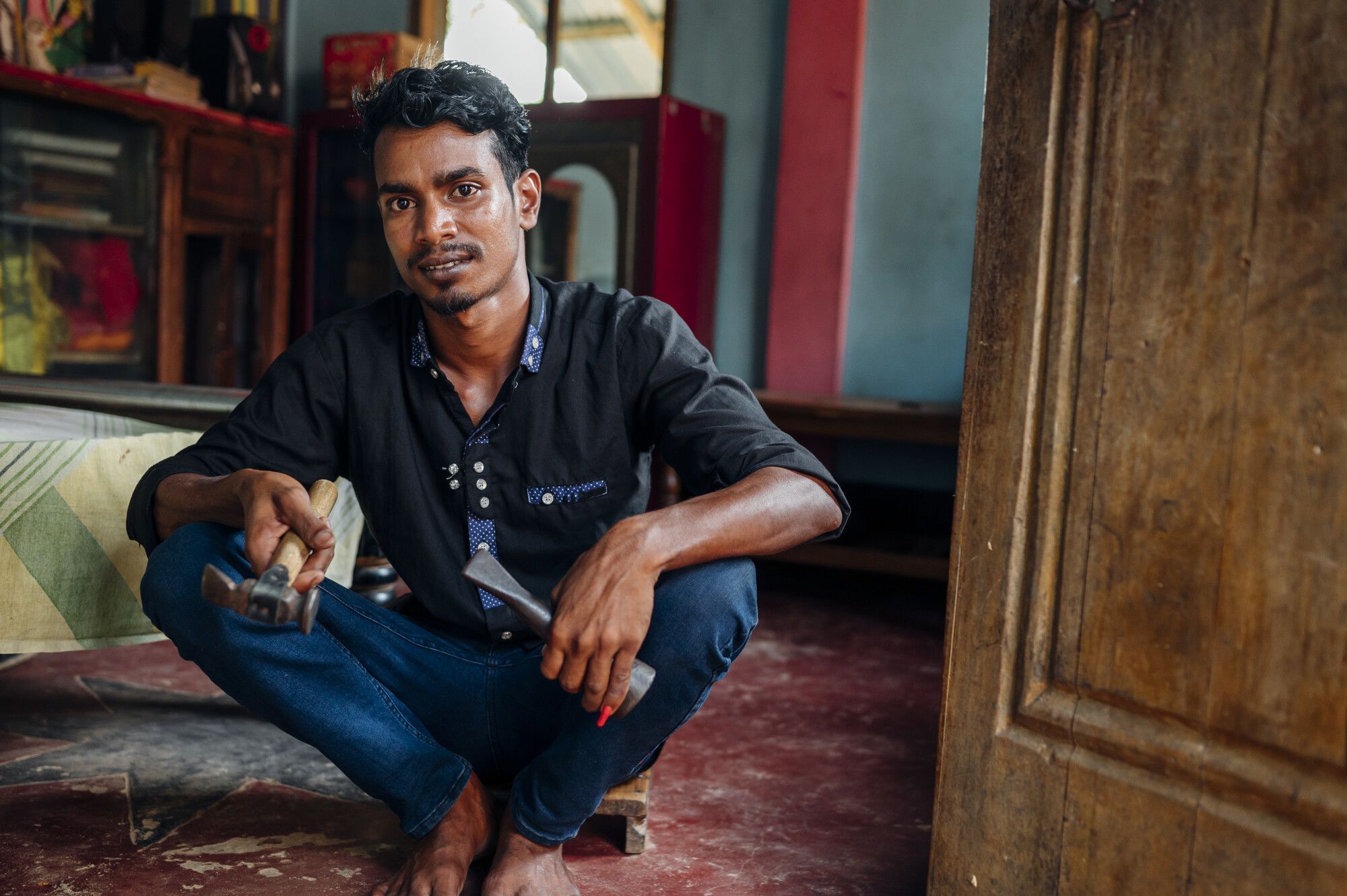
Now is the time to join us and help diagnose and cure leprosy, prevent disability and protect livelihoods. The hopes and dreams of thousands of tea garden workers depend on it.
Together, we can end leprosy in the tea gardens in Bangladesh, so people affected by the disease can truly flourish.
All photos: Ruth Towell/The Leprosy Mission
